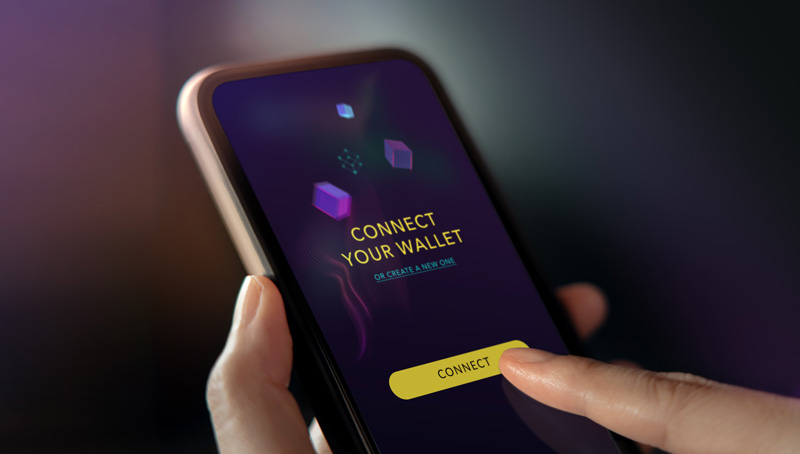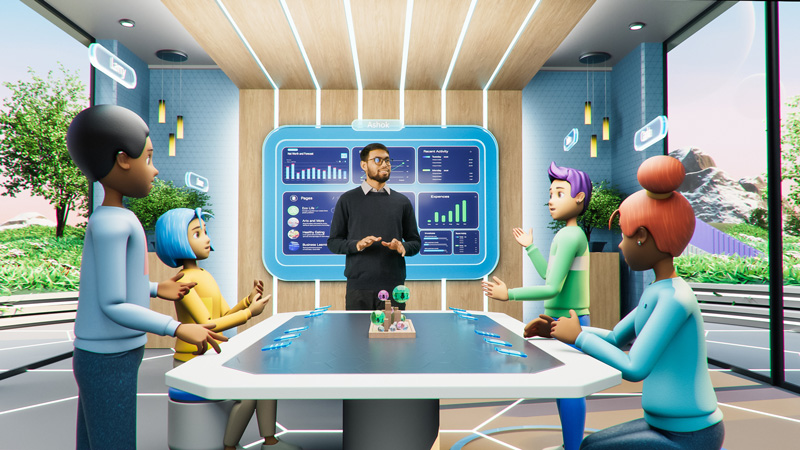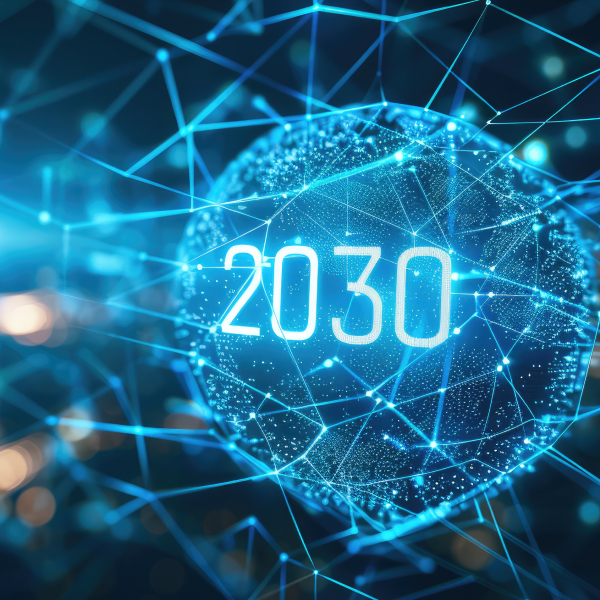Close your eyes and imagine it’s 2030. You check in on your employee’s rewards dashboard—not by logging into a website, but through an augmented reality (AR) interface that pops up in your living room. You see real-time metrics on your latest achievements, personalized suggestions for wellness, professional growth, and even carbon offset rewards. Meanwhile, your favorite local retailer pings your smart glasses with a discount for the brand-new product you’ve been eyeing, calculated based on the green initiatives you both support.

This might sound like sci-fi, yet the seeds are being planted today. Loyalty programs increasingly merge advanced technology—like AI, blockchain, and immersive experiences—with human-centric design. By 2030, we’ll likely see loyalty initiatives that don’t just engage employees and customers, but seamlessly integrate with every aspect of our daily lives, from well-being and ethical spending to professional development and community building. This article will explore five major innovation trends reshaping the loyalty landscape and how they could evolve over the next decade. If you’re curious about the future of rewards, recognition, and brand advocacy, read on.
AI-Driven Personalization Reaches New Heights
Predictive Analytics at Scale
By 2030, artificial intelligence will have advanced to the extent that real-time analytics can predict what we want before we even know we want it. Today, AI helps segment us into micro-groups based on our browsing or performance history. Ten years from now, these systems will analyze even more data points—like our wearable device readings, mood indicators (gathered through biometric signals or voice analysis), and contextual information such as local environmental factors.
Imagine an employee who just wrapped up a high-stakes project and is showing signs of fatigue via a wearable device—instantly, the company’s AI might suggest a stress management seminar and reward points redeemable for a weekend wellness retreat. Or picture a customer who typically buys eco-friendly products; upon noticing that they’ve run low on their usual staples, the system proactively sends a unique discount code for biodegradable household supplies, timed perfectly with the customer’s usage pattern.
Conversational Interfaces
Voice-activated assistants and chatbots aren’t new, but they’ll become more intuitive and natural. Think about a day when you simply say, “Hey, can you check if I have enough reward points to book that volunteer-based vacation?” and your virtual assistant provides an immediate update. On the employee side, you might dictate a quick “thank you” to a team member, which gets logged in a recognition system, awarding them points or a peer-to-peer badge.
Advanced AI and conversational tools reduce friction and make loyalty feel effortless. Instead of searching for deals or waiting for feedback, the right opportunities come to us exactly when we need them—boosting our sense of being supported and understood.
Blockchain, Tokenization, and Decentralized Loyalty
Universal Reward Tokens
Currently, most reward points are siloed within individual brands or employers. However, blockchain technology paves the way for decentralized loyalty networks where tokens can move seamlessly across programs. By 2030, imagine a single, universal loyalty wallet: you earn tokens from your workplace’s recognition system that you can apply to your favorite retailer, then transfer leftover tokens to pay for a local gym membership.

This fluidity empowers employees and customers to extract maximum value from loyalty programs, while companies benefit from shared ecosystems where each participant amplifies overall engagement. A single token type means fewer barriers and more creative ways to earn, trade, and spend points across multiple brands or partnerships.
Trust and Transparency
One of blockchain’s greatest strengths is its immutability. When reward transactions are recorded on a decentralized ledger, fraud or point manipulation concerns diminish. Employees feel secure knowing their earned perks won’t magically disappear; customers trust that no “back-end glitch” will erase their accumulated rewards. On top of that, the environmental impact of blockchain will likely improve with new “green” protocols and more efficient consensus mechanisms—addressing current concerns about high energy use.
A token-based system backed by transparent, tamper-proof technology removes confusion and distrust around loyalty programs. We gain more freedom to use rewards in ways that fit our lives, fueling a sense of empowerment and long-term commitment.
Immersive Experiences: AR, VR, and Metaverse
Virtual Collaboration and Recognition
Fast-forward to 2030, where hybrid and remote work models are no longer “alternative” but standard. Employees might attend daily stand-ups in virtual reality (VR) environments that closely mimic real offices or creative studios. Recognition for a job well done could appear as a floating badge over your avatar’s desk or as digital confetti in a shared VR workspace. A robust loyalty system might also reward employees for hosting virtual workshops, boosting skills, or mentoring newcomers in these immersive spaces.

Gamified Customer Journeys
On the consumer side, brands explore 3D worlds and augmented reality overlays that transform shopping into an experience. Picture trying on clothes via a realistic avatar that matches your exact measurements, then earn loyalty points for completing virtual “challenges” that educate you about ethical sourcing. By 2030, digital loyalty badges and achievements might become as sought-after as physical merchandise—think of them as the next evolution of brand fandom.
Immersive tech can bring distant teams closer and make ordinary shopping an adventure. Rather than feeling disconnected behind screens, we experience shared spaces and real-time recognition, deepening emotional connections with employers and brands.
Ethical and Socially Impactful Loyalty
ESG-Integrated Rewards
Environmental, Social, and Governance (ESG) factors will continue to rise in prominence. By 2030, we can expect loyalty programs to routinely incorporate social good. Employees might earn extra points or paid volunteer hours for eco-friendly commuting or for participating in local clean-up efforts. Customers might redeem points for carbon offset projects or donate them to charities championed by the brand.

Over time, this purposeful approach goes beyond “bonus perks”—it becomes a core aspect of loyalty itself. People will assess employers and brands not just on base pay or product quality, but on the tangible impact of their loyalty programs. This shift will redefine loyalty from a transactional concept to a genuinely transformative one, where each redeemed point or reward helps foster community, sustainability, or social equity.
Transparent Reporting and Impact Metrics
Organizations will likely adopt real-time dashboards showcasing the collective impact of their loyalty initiatives. For example, a brand might display: “Our community of shoppers has planted 50,000 trees this quarter,” or an employer’s recognition platform could show: “Employees donated 2,000 volunteer hours to local charities this month.” These figures become a source of collective pride, fueling a sense of shared purpose.
Ethical loyalty programs remind us that our daily actions—like redeeming a reward or hitting a team milestone—can create positive, tangible change. This sense of contributing to something bigger fosters powerful emotional bonds.
A Data-Conscious Future
Proactive Privacy Controls
Data ethics will remain a hot topic throughout the 2020s and beyond. By 2030, users could enjoy more granular control over the data they share in loyalty platforms—opting in or out of specific data categories. Advanced AI might prompt you, “Would you like to share your fitness app data to earn extra wellness rewards?” You can easily say yes or no, confident that your choice will be respected.
Employers and brands that prioritize privacy by design will stand out. Secure data architectures, transparent usage policies, and easy-to-navigate consent management will differentiate trustworthy loyalty systems from those that raise concerns. With governments worldwide likely to enact stricter regulations, compliance will serve as both a legal mandate and a competitive advantage.
Personalized But Not Creepy
Striking a balance between helpful personalization and invasive data collection will be crucial. By 2030, loyalty systems may rely on contextual intelligence—using location data only when relevant, scanning health metrics only when explicitly authorized, and segmenting marketing messages to avoid overreach. The aim: personalization that feels supportive, not unnerving.
When we control our data, we can embrace the full potential of personalized rewards without sacrificing privacy. This empowerment strengthens trust, the bedrock of any long-lasting loyalty relationship.
Short Realistic Anecdotes About the Future
Employee Well-Being Ecosystem
- Scenario: In 2030, Miriam starts her day by logging into an immersive VR office. She receives a real-time alert that her stress levels are elevated (based on her voluntary wearable data). The system suggests a 10-minute mindfulness break and auto-awards her “Wellness Points” if she takes it. Miriam redeems these points for a family-friendly vacation sponsored by her employer’s mental health initiative.
- Impact: Miriam feels consistently cared for—her company, notices her well-being, offers practical support, and rewards her for taking proactive steps. It’s not about micromanaging her health but enabling her to thrive.
Cross-Brand Token Economy
- Scenario: Paolo accumulates universal tokens from his job’s recognition program. He uses them to get a discount on groceries at a partner supermarket, then transfers a leftover balance to fund an online art class. The process is seamless, with no separate sign-ups or tedious conversion rates.
- Impact: Paolo loves how these tokens let him shape rewards around his life, turning what once felt like isolated loyalty programs into an interconnected ecosystem of possibilities.
By 2030, loyalty systems could revolve around holistic well-being, flexible rewards, and ethical data usage. Employees and consumers feel genuinely valued, not just by the perks they get but by how they fit their lives and aspirations.
Preparing for 2030: Best Practices to Adopt Now
Lay a Foundation of Trust
- Secure and Compliant: If your loyalty initiatives already protect user data and stay current with regulations, you’ll be well-positioned to adopt new technologies without triggering skepticism.
- Transparent Communication: People prefer to know where their information goes. Establish a clear, user-friendly privacy policy, and maintain open dialogue about upcoming changes.
Experiment with Emerging Tech
- Pilot AR or VR Projects: Launch small-scale experiments—like virtual training sessions or consumer “trial rooms”—to gauge user interest.
- Explore Blockchain Partnerships: Partner with specialized vendors or consortiums to see how universal tokens might integrate with your existing loyalty system.
Integrate Values into Loyalty
- Focus on ESG: Offer philanthropic or eco-friendly rewards now. Over time, scale these programs into essential parts of your loyalty strategy.
- Track and Share Impact: Even if the numbers are modest, consistent reporting of achievements fosters a sense of community.
Prioritize Inclusive Design
- Accessibility Matters: As tech evolves, ensure AR, VR, and AI-driven platforms remain accessible to employees and customers of varying abilities.
- Cultural Localization: Offer multilingual, culturally nuanced experiences, especially if your workforce and consumer base span multiple regions.
Building a future-proof loyalty program begins with trust, experimentation, ethical considerations, and inclusivity. When we adopt these principles now, we pave the way for smoother transitions into the more advanced, interconnected loyalty ecosystems of 2030.
Conclusion
As the world leaps forward with AI, blockchain, immersive tech, and heightened data consciousness, loyalty programs stand on the brink of transformative growth. By 2030, we may see a reality where tokens flow seamlessly across employer and retailer ecosystems, immersive VR workplaces encourage team building, and personalization is so intuitive it feels like a caring friend anticipating our needs.
Yet behind each technological leap, there’s a human story—the desire to feel recognized, appreciated, and aligned with values that matter. Innovation in loyalty should revolve around these emotional and ethical dimensions, not merely convenience or novelty. By prioritizing trust, fostering well-being, and weaving social impact into the heart of loyalty initiatives, we ensure that tomorrow’s programs truly elevate human experiences rather than overshadow them.
Embrace innovation, but never lose sight of why loyalty matters: it’s about forging genuine connections that help each of us grow—at work, at home, and in the communities we care about. By setting our sights on 2030 with empathy, ethics, and creativity, we can co-create a future where loyalty isn’t just a program—it’s a shared journey of positive impact for everyone involved.
Transform how you engage employees and customers. Contact All Digital Rewards Today to explore solutions that drive loyalty and build deeper connections.
Suggested Reading
- Gartner – Future of Workplace and Technology Trends
- Gartner: Future of Work
- Forrester – AI, Blockchain, and Consumer Personalization
- Forrester Research: The Future of Customer Loyalty
- Deloitte – ESG, Workforce Analytics, and Immersive Tech
- Deloitte Tech Trends
- KPMG – ESG and Sustainability Research
- KPMG: ESG and Sustainability
